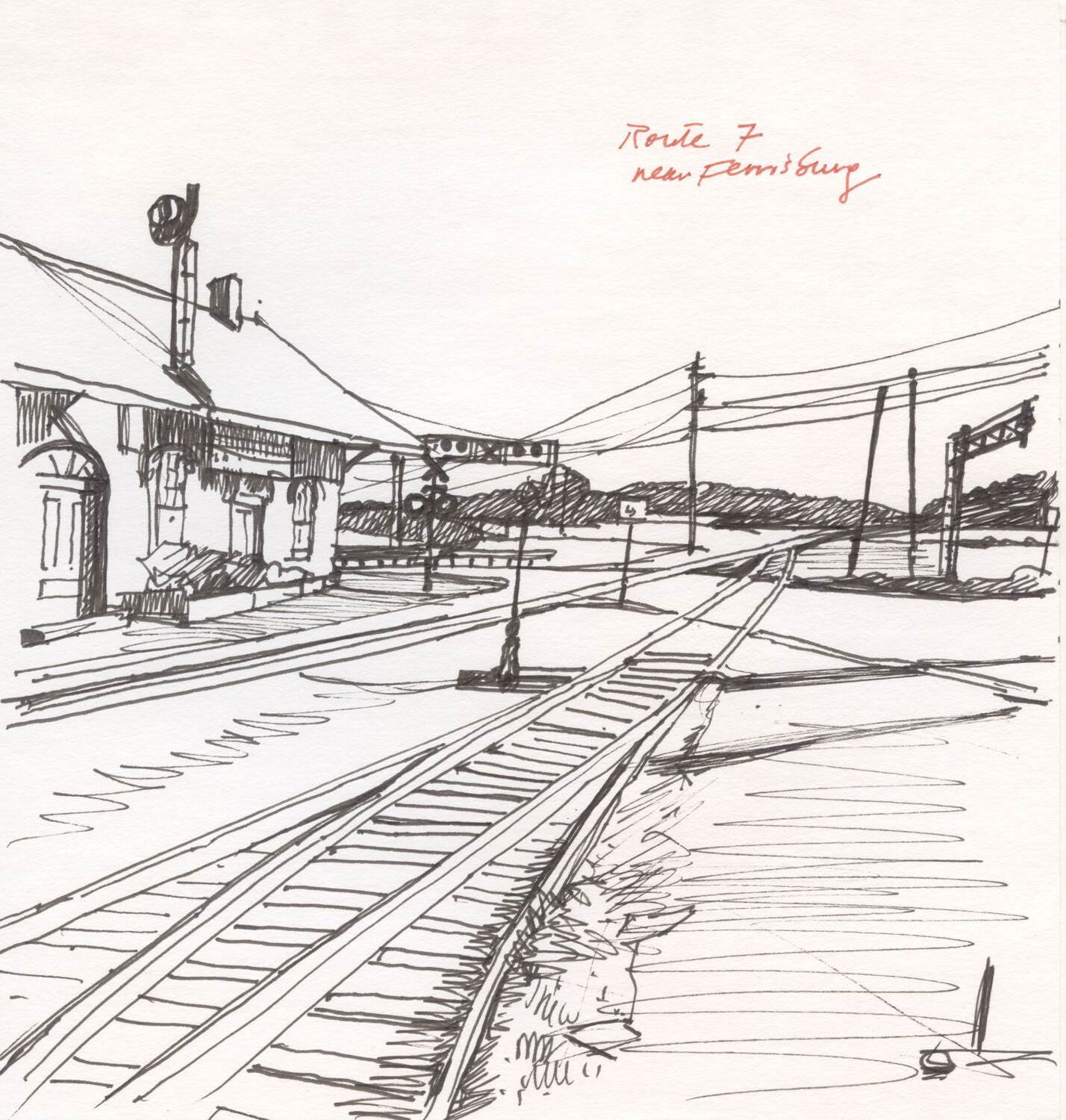Ferrisburgh
The old homestead in Ferrisburgh had served as one of the "underground railway" stations where fugitive slaves were harbored in secret whenever, in escaping, they turned up on their way to Canada..
Charles Edward Crane, “Let Me Show You Vermont”
Ferrisburgh on my first pass through seemed to be one of those quick "drive-by" towns. But like the "fly-over" parts of our country, on closer and slower inspection this is a place with a thousand stories. Take, for example, what I learned about the large white building with the cupola on busy Route 7.
A quick glance on your left as you drive by wouldn't tell you much, but this typical New England structure has been through more dramatic shifts of the sacred and secular than the Pantheon in Paris. For seventy years it was a church, then for six more decades a Grange Hall—a somewhat radical function, as the Grange was a powerful national farmers’ cooperative organization that promoted their social and economic interests.
As agriculture waned in Ferrisburg in more recent years, the building once again changed roles. On the day in 2004 that the municipal committee signed a contract to convert the venerable Grange Hall to Town Hall, an arsonist torched it to the ground. Three years later Ferrisburgh's central edifice rose again, a replica of the original 1800's Congregational Church rebuilt right down to the windowsill trim (though minus the steeple) by a town devoted to its own history.
This spring I need to drive back down Route 7 to Ferrisburgh and visit Rokeby Museum, once the home of the remarkable Robinson family, and like the town hall a place haunted by political and social history. The four generations of Robinsons were skilled millers and farmers, devoted naturalists and conservationists, Quaker abolitionists who offered Rokeby as a refuge to slaves fleeing north on the Underground Railway, and last but not least, innovative artists. Take a look at Rachel Robinson's beautiful postcard prints of New York City, which were the first of their kind. This impressive family even included a famous author, Rowland Robinson. His novels about the imaginary hill town of "Danvis" made him the Faulkner of Vermont.
I also didn't get a chance to take a look at the lake section of Ferrisburgh, although I may have accidentally driven through it on my way to Vergennes. The geography gets a bit confused here as the town of spreads out to "the hollow" up north and then runs in fits and starts down Route 7 to Basin Harbor Resort. Like the nearby big-time specialty food company Dakin Farms, the Resort was founded in the 1800's by a local farm family trying to make some much-needed cash by offering a slice of Vermont to flatlander tourists.
Button Bay, Bay State Park, and Little Otter Creek are low-cost recreational alternatives to the resort for water-loving Ferrisburghers. And as the tack shop stature demonstrates, there's always horseback riding on back roads for fun.
I can see that the towns of Vermont require more exploration time than a quick drive through on a 251 tour! I’ll be back with my easel to take a closer look.


